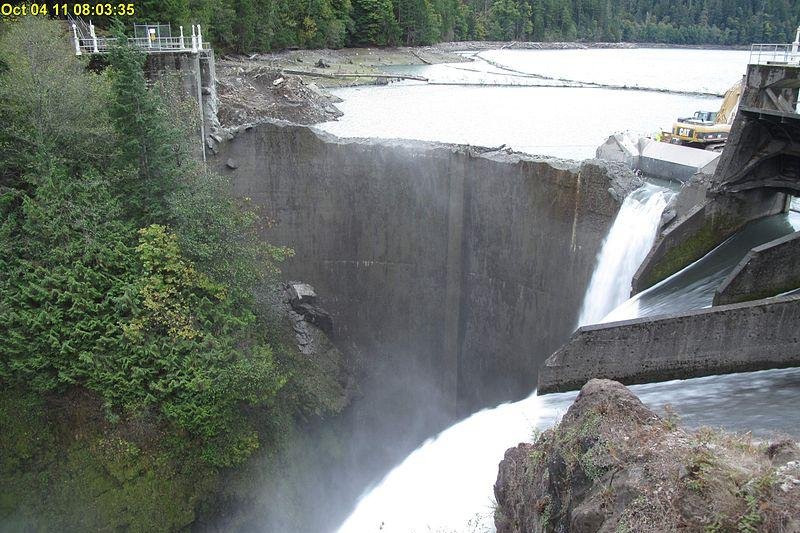OLYMPIC NATIONAL PARK, Wash., Aug. 27 (UPI) -- With one last blast of dynamite on Tuesday, the remaining chunks of cement making up what was once Glines Canyon Dam were dislodged and destroyed, freeing Washington State's Elwha River for the first time in more than a century.
Though a bit of rubble remains -- rubble which will be cleaned up in the coming weeks -- the river is now free to cut its own course, free of man-made obstacles. In addition to returning to a natural pathway to the sea, its water levels will also normalize.















